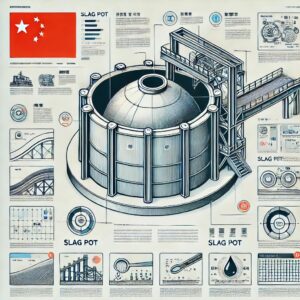Last week we asked Eduardo Saavedra, Executive Vice President of Business Development for Tetakawi, to write about Mexican shelter manufacturing as an alternative to the contract manufacturing, with which our readers tend to be more familiar due to their manufacturing operations in China.
Our writings on manufacturing moving from China to Mexico have been incredibly popular. Our post “Mexico is the New China” and Manufacturers are Moving There is our fourth most read blog post of all time and it has also garnered nearly 10,000 additional views and closing in on 100 comments on Linkedin. We have even received a few suggestions (joking, I think) that we rename our blog the “Mexico Law Blog”. Eduardo’s post also garnered a lot of attention and generated a number of questions and I encourage you to read his thorough explanation of shelter manufacturing. What with China tariffs and shipping costs and geopolitical tensions all rising at the same time, it would appear that for many companies the tipping point for moving manufacturing out of China has arrived.
In this post I will briefly outline the basic traits of Mexico shelter manufacturing and some of its advantages over contract manufacturing. Recapping Eduardo’s post, shelter companies in Mexico offer a range of services to their foreign clients, allowing those clients to remain focused on their areas of expertise, e.g. manufacturing operations, quality control, and customer service. Services provided by Mexican shelter companies typically include the following:
- General administration
• Accounting & payroll
• Tax filing
• Human resources & recruitment
• Customs compliance
• Import and export administration
• Environmental compliance
Advantages of the Mexican shelter model for manufacturers include:
1. Reduced legal liability. Overseas manufacturers do not register as Mexican legal entities; the shelter company is responsible for all legal administration and compliance.
2. Fast set-up. Mexico Shelter companies provide a smooth on-ramp for foreign manufacturers; they have physical premises and they are experienced at obtaining permits and meeting all other administrative requirements.
3. Lower costs. Because the shelter company model was developed (in the 1980s) to make Mexico more attractive to foreign manufacturers, shelter companies benefit from government-provided income and tax incentives.
4. Local knowledge. As is true when you partner with any local company, anywhere, Mexican shelter companies can provide valuable information and market access, including access to high-quality employees.
5. Greater control. Because shelter companies are not pure manufacturers, they are not in competition with their foreign clients, which can be a huge problem for companies engaging in contract manufacturing in China. See Your Chinese Product Supplier is Your Competitor not Your Friend. Under a Mexican shelter manufacturing program, the foreign clients own and control their intellectual property, production assets, production processes, quality control processes, and supply chain. This gives them full oversight on product consistency, quality assurance, etc.
Yes, there will always be a third option for manufacturers, which is to set up wholly owned subsidiary factories (legally known in China as WFOEs, or Wholly Foreign Owned Entities), but this tends to be a costly and cumbersome process for companies entering the market for the first time or that are not yet manufacturing large quantities of product(s).
Of course, the manufacturing solution and country that makes the best sense for your company will depend on many factors, not least among them your size and experience and ability to “go it alone”. But for many companies looking at Mexico as a solution to tariff costs/shipping costs/geopolitical risks/quality issues/intellectual property theft problems, Mexico’s shelter manufacturing model offers a relatively fast, reliable, low-risk way to rearrange your supply chain in uncertain times.

























